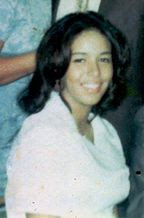Act Two - Journey Pt. 3
America began flirting with the One Drop Rule in the 1830s, with the concept of passing predictably following suit. The French and Spanish had been bought out in the preceeding 30 years, giving the British license to impose their race and class sensibilities on the entire region. Freed Northern slaves, who were often themselves biracial, also embraced the One Drop Rule but as a way to foment ethnic solidarity and fight prejudice. The first American novels about passing, Clotel and The Garies and Their Friends, were actually writen by blacks not whites.
America's most famous 19th century "black" abolitionist, Frederick Douglass, was one of the first casualties of Northern white and black collusion on One Drop Rule. Douglass, the son of a slave woman and an unidentified white man, desired early on to be recognized as half-black and half-white. White and black abolitionists alike refused. The white Garrisonians who kicked off his lecturing career exposed their paternalism, and by extension their refusal to see his whiteness, when Douglass traveled to Britain with his anti-slavery message. Black abolitionists ignored his newspaper The North Star until he actively courted the black leadership and their agenda in its editorials. According to Douglass biographer Benjamin Quarles, black abolitionist James McCune Smith would say this to white abolitionist Gerrit Smith of their contemporary:
You will be surprised to hear me say that only since his Editorial career has he seen to become a colored man! I have read his paper very carefully and find phrase after phrase develop itself as in one newly born among us.
Douglass' launch of The North Star would trigger his break from the Garrisonians, and put him firmly in the camp of black abolitionists. This "black" Douglass, considered by some as the progenitor of modern African American thought, is the one America reveres - not the one who tried to reconcile American society to his biracial identity.
- These series of posts are dedicated to the ‘finest woman in East Elmhurst’ of her day, my mother Kathlean Elizabeth Barnes. I am bold because she could not be.
Technorati Tags: Frederick Douglass - passing - One Drop Rule









No comments:
Post a Comment